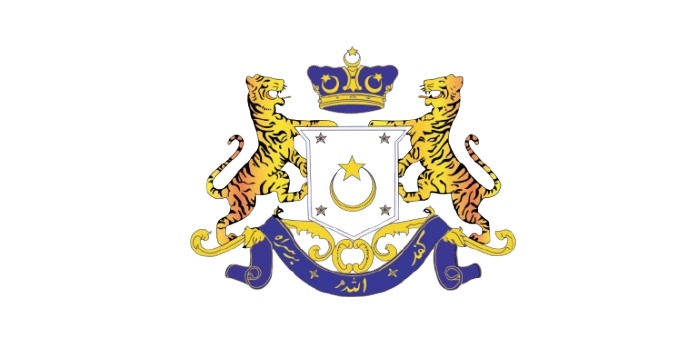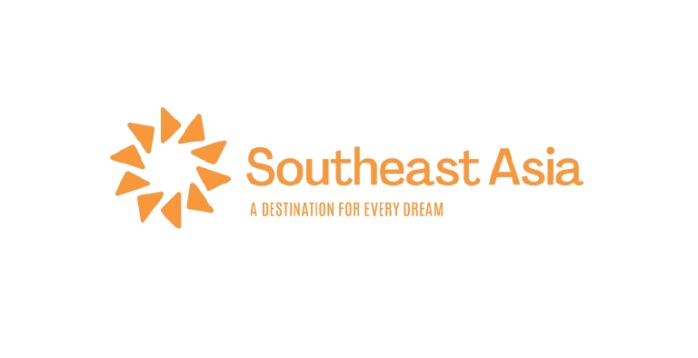Get to know about Malaysia’s festivals worth the trip! People know Malaysia, a nation in Southeast Asia, for its rich diversity of cultures. This stems from the country’s multi-ethnic population, which includes Malays, Chinese, Indians, and others. Hence, Malaysians celebrate various festivals throughout the year as a result of this diversity.
1. Chinese New Year
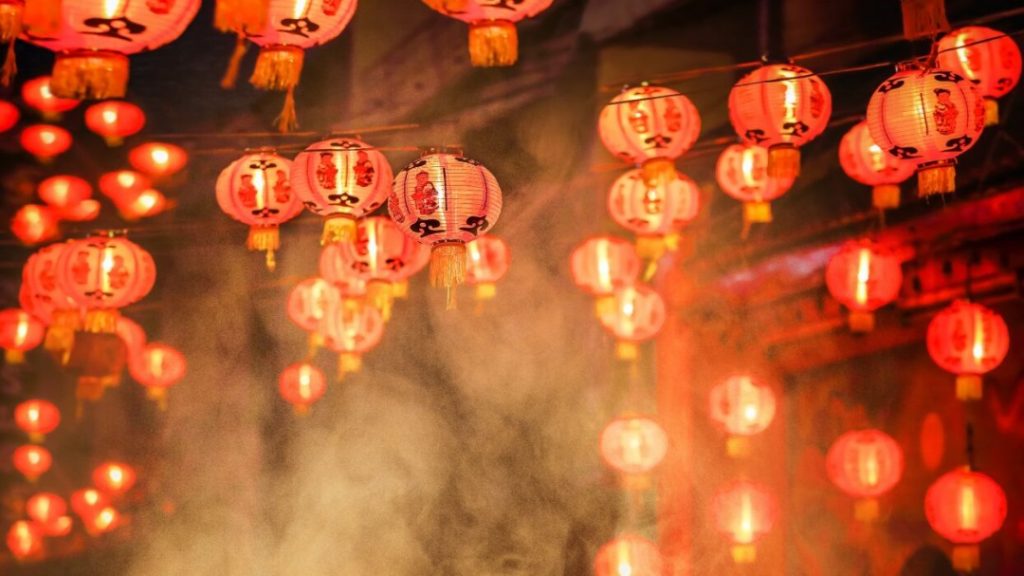

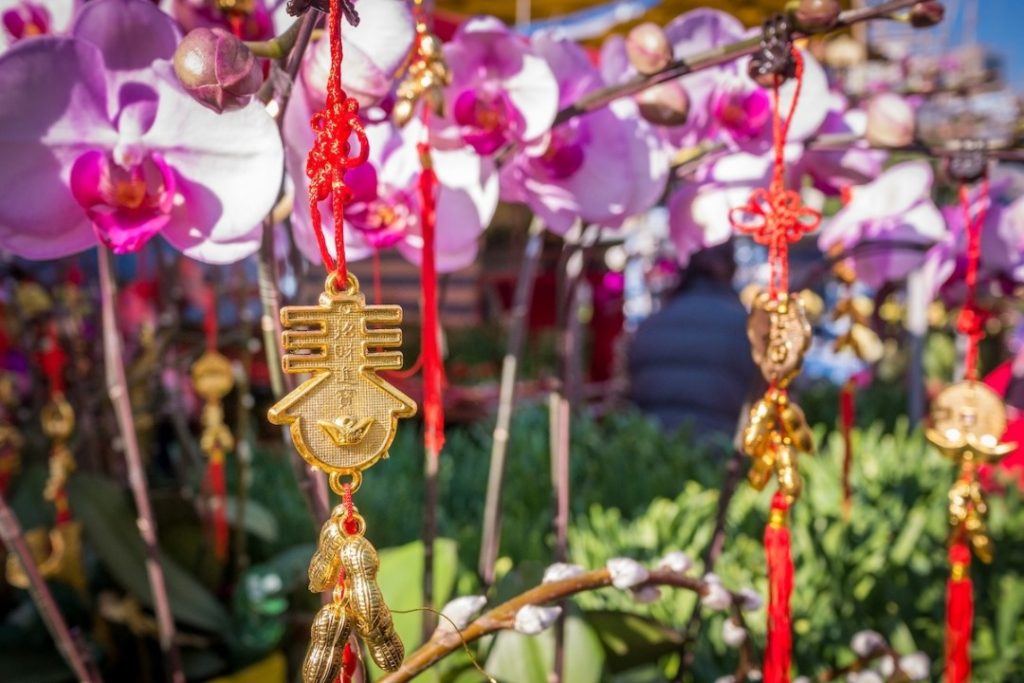
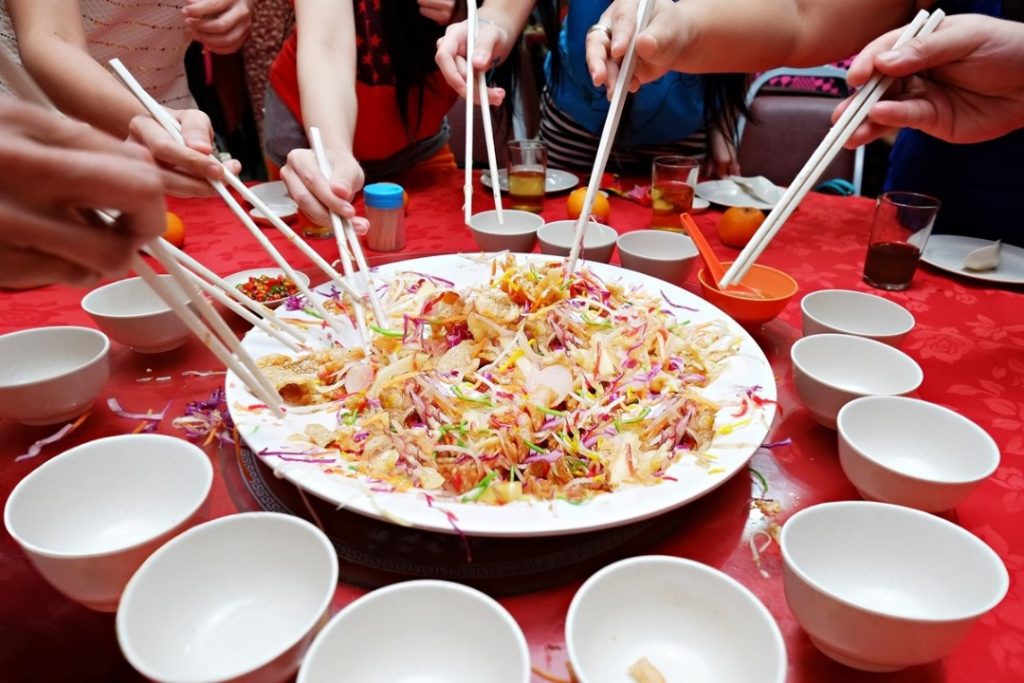
source: agoda.com
Chinese New Year is a significant festival in Malaysia, marked by vibrant traditions that emphasize unity and prosperity. Families gather for a reunion dinner on New Year’s Eve, symbolizing togetherness and abundance. Elders give red envelopes (ang pow) filled with money to children and unmarried adults as a blessing.
Performers showcase lion and dragon dances in homes, businesses, and malls to bring good luck and ward off evil spirits. Families visit relatives, and open houses welcome friends from all backgrounds, fostering cultural harmony.
Malaysians exchange mandarin oranges, which symbolize prosperity, as gifts. A unique tradition in Malaysia and Singapore is Yee Sang; a prosperity toss salad where people toss ingredients while expressing wishes for success. The celebrations conclude with Chap Goh Mei, the 15th day, known as the Chinese Valentine’s Day, where singles throw oranges into the sea, hoping to find love.
Chinese New Year is a public holiday in Malaysia, with festivities lasting 15 days, though the first two days are the most significant. The celebrations reflect Malaysia’s rich cultural diversity and spirit of togetherness.
2. Hari Raya Aidilfitri

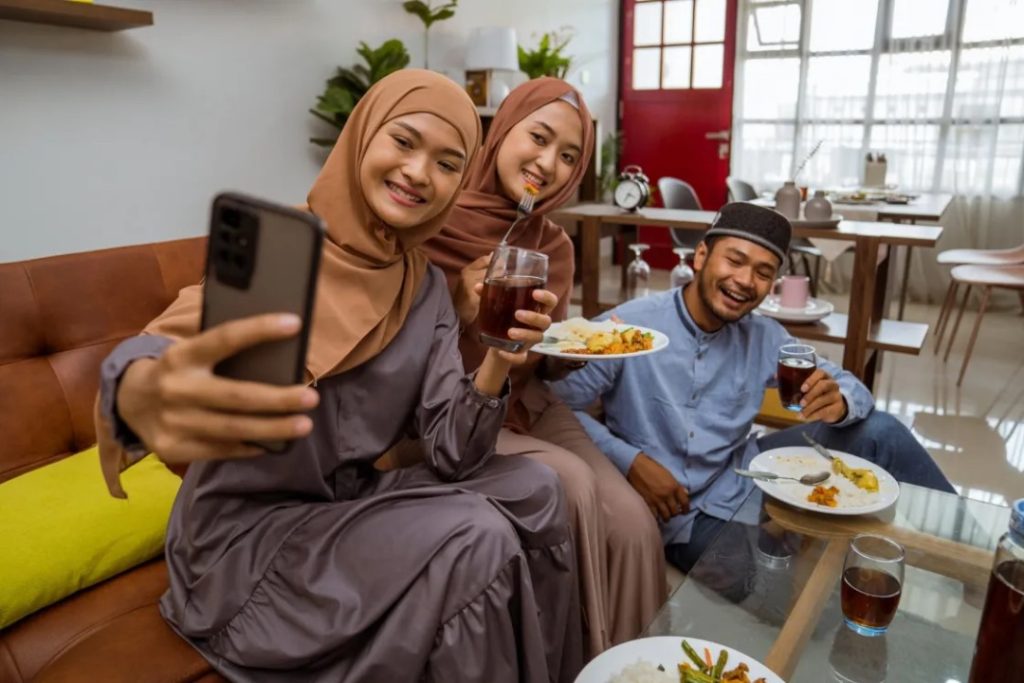
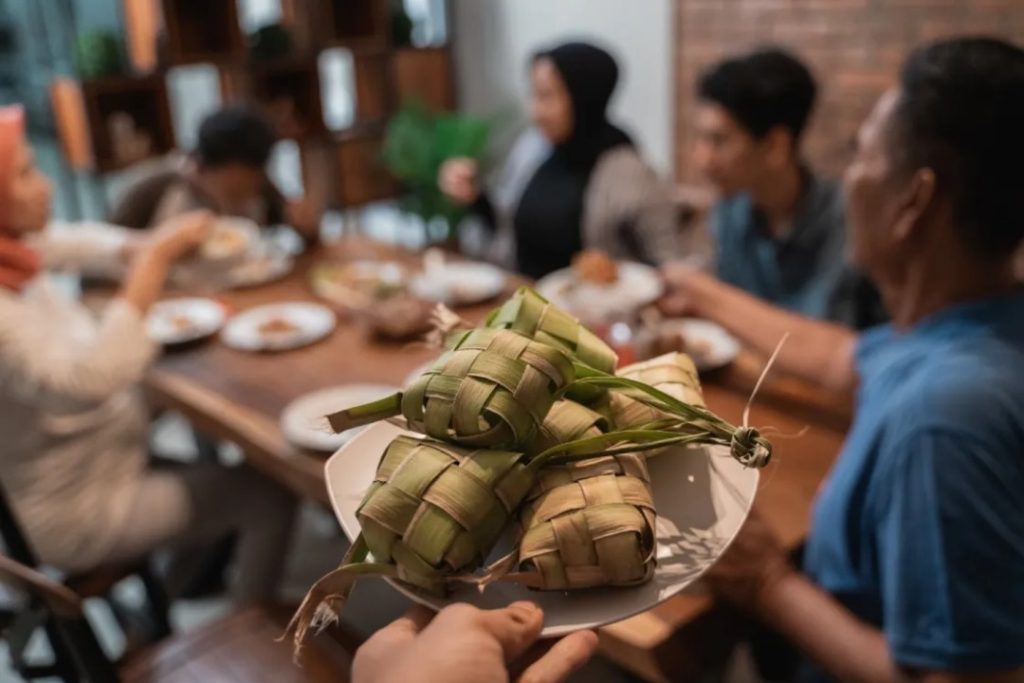

source: life.ohsem.me
Next, Hari Raya Aidilfitri, also known as Eid al-Fitr, is a joyous and significant festival celebrated by Muslims in Malaysia. It marks the end of Ramadan, a month of fasting, prayer, and reflection. The celebrations begin with “Balik Kampung,” where many Malaysians return to their hometowns to reunite with family.
On the first morning, Muslims perform special Hari Raya prayers at mosques, followed by a meaningful tradition of seeking forgiveness from elders and loved ones. Families then open their homes to friends and neighbors of all backgrounds, embodying the spirit of unity and generosity through open house gatherings.
Malaysians wear traditional attire, with men donning Baju Melayu and women wearing Baju Kurung or Baju Kebaya. The festival is incomplete without special dishes such as ketupat, rendang, lemang, satay, and various kuih (traditional desserts). Elders also distribute “Duit Raya,” small packets of money, to children and younger relatives as a token of blessings.
Although Hari Raya is officially celebrated for a month, the first few days are the most significant. It is a time of joy, gratitude, and togetherness, reinforcing the bonds of family and community in Malaysia’s multicultural society.
3. Deepavali
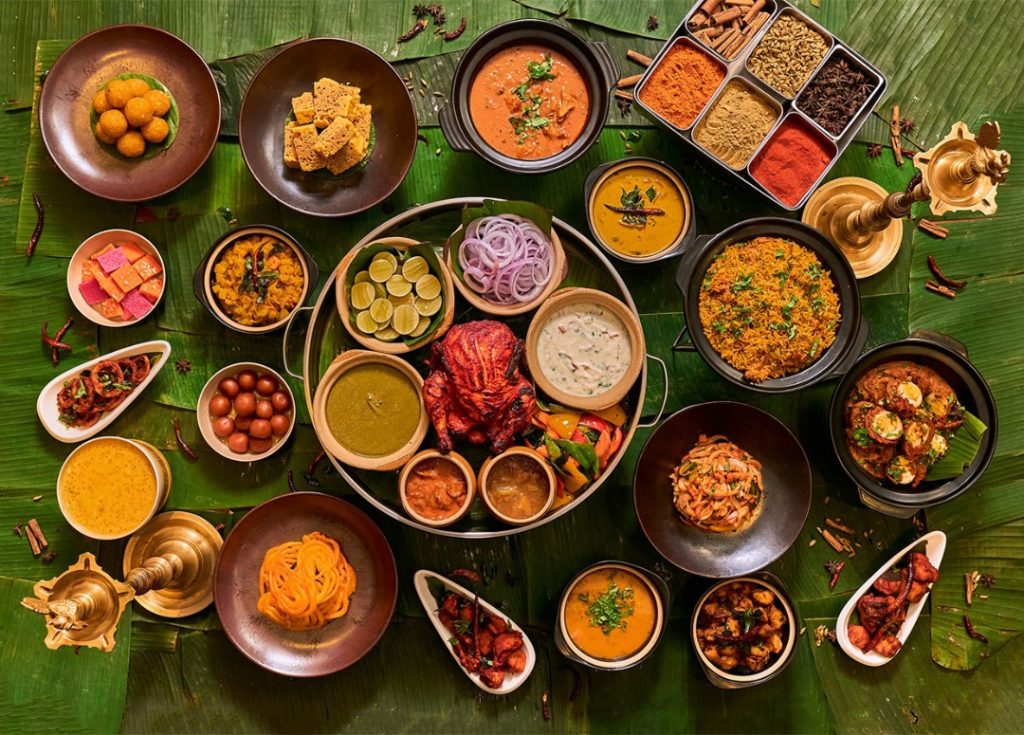

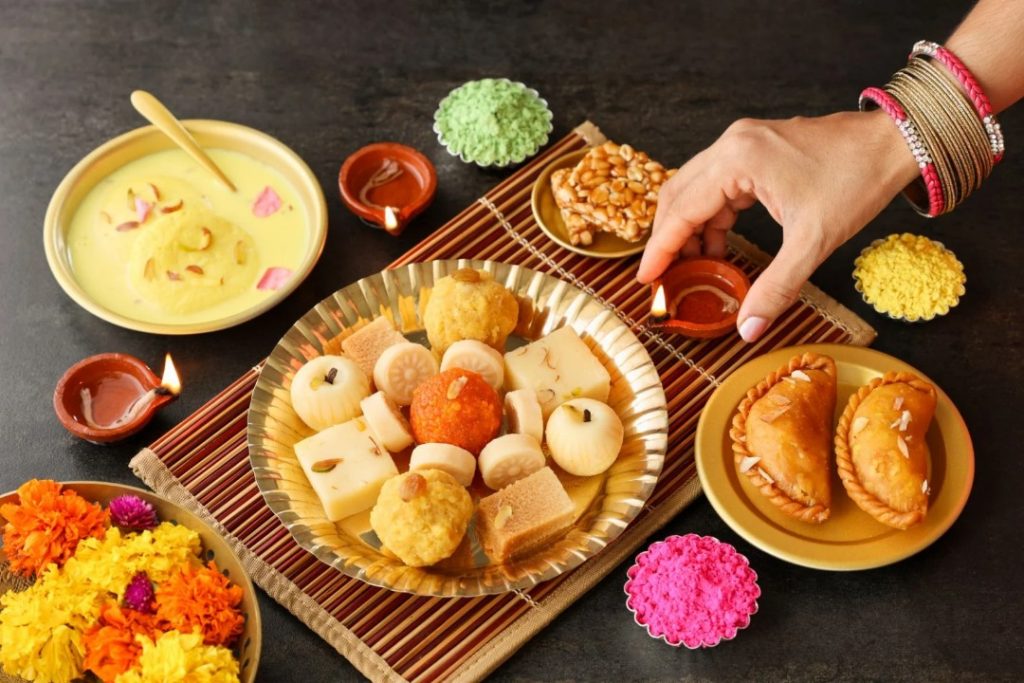
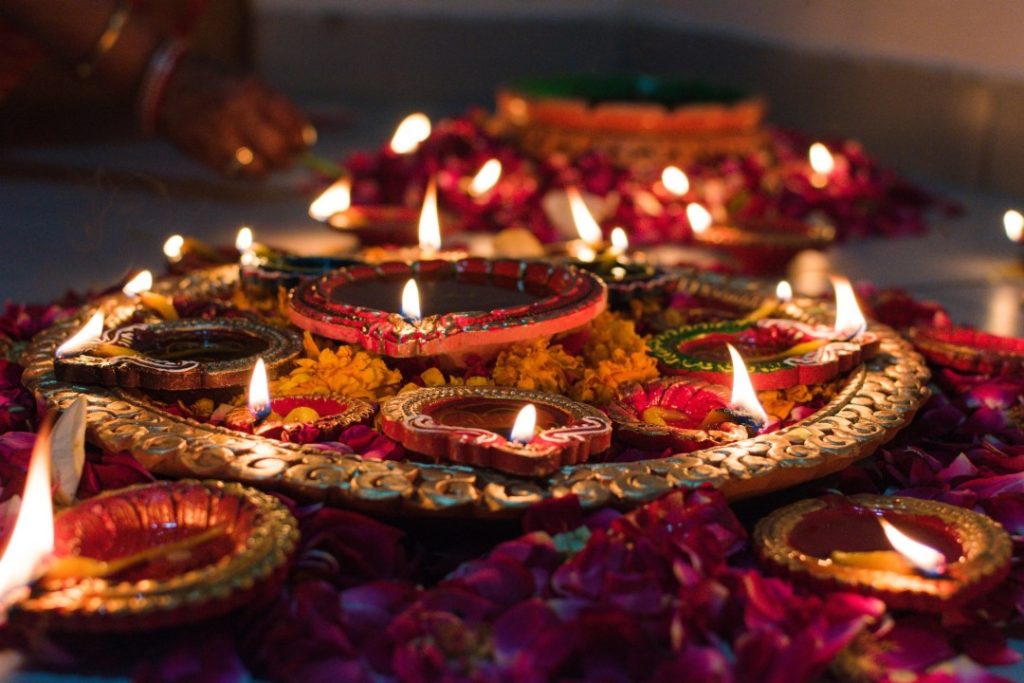
source: https://parenthood.my/, istock, https://www.buro247.my/
The Indian community in Malaysia celebrates Deepavali, also known as Diwali, as a major Hindu festival. Symbolizing the victory of light over darkness and good over evil, it usually falls in October or November, depending on the Hindu lunar calendar.
The day begins with a traditional oil bath, signifying purification and renewal. Many Hindus then visit temples to offer prayers and seek blessings for a prosperous year ahead. They decorate homes and temples with vibrant “kolam” (or rangoli) made from colored rice or flowers to invite prosperity and positive energy.
Families celebrate by wearing traditional attire—women in sarees and men in kurta or dhoti—and hosting open houses where they welcome friends of all races and religions to share in the festivities. The spread includes a variety of Indian delicacies such as murukku, laddu, curry dishes, and banana leaf meals.
They also light homes with diyas (oil lamps) to symbolize the triumph of light, and they set off fireworks to enhance the festive mood. Deepavali is a public holiday in Malaysia, and while celebrations may span several days, the main festival day remains the most significant. It is a time of family, unity, joy, and heartfelt gratitude.
4. Christmas Day
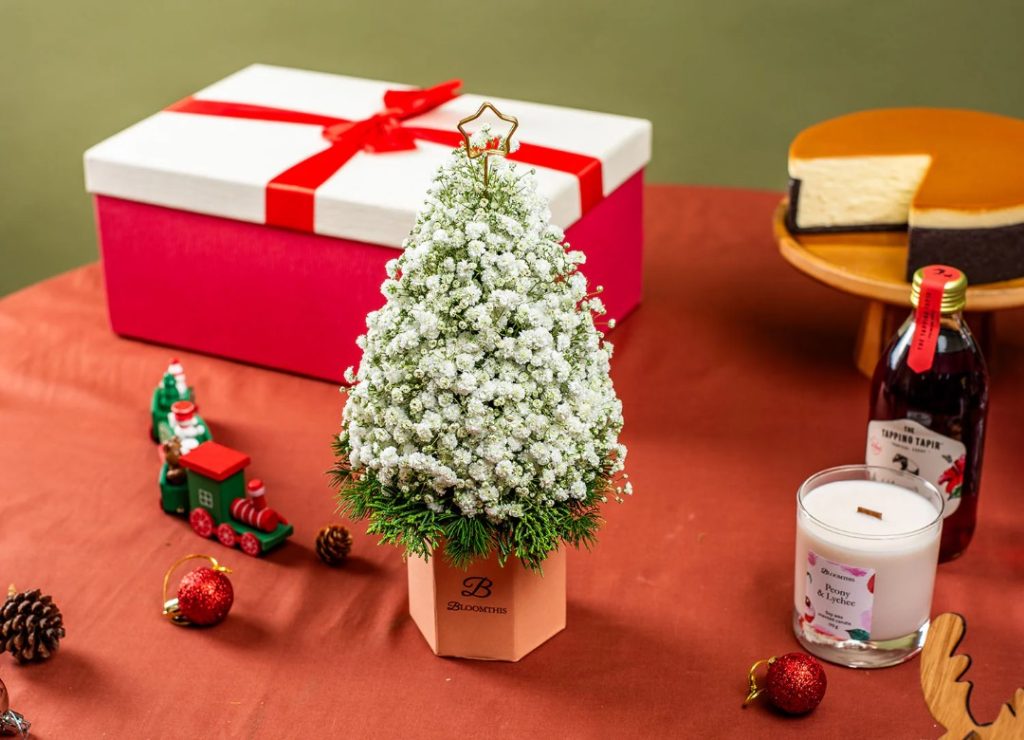



sources: Canva, Eat Play Sleep Malaysia, flickr, https://bloomthis.co/
Though Malaysia is a Muslim-majority country, Christmas is widely celebrated, especially in urban areas like Kuala Lumpur and Penang. The season is marked by vibrant decorations in shopping malls, hotels, and homes, featuring Christmas trees, lights, and festive ornaments.
Christians in Malaysia attend midnight or morning church services to commemorate the birth of Jesus Christ. Many families exchange gifts, and children enjoy visits from “Santa Claus” at malls and events.
Christmas carols and festive music fill the air, with performances held at churches and malls, creating a joyful atmosphere. Christian families often host open houses, welcoming friends of all races and religions to join in the celebration. This practice reflects Malaysia’s multicultural spirit of inclusiveness and unity.
In addition to the festivities, year-end sales make Christmas a busy shopping season, as people hunt for gifts and enjoy discounts. Malaysians embrace Christmas as a time of joy, sharing, and community celebration, highlighting the country’s cultural diversity and harmony.
5. Hari Gawai
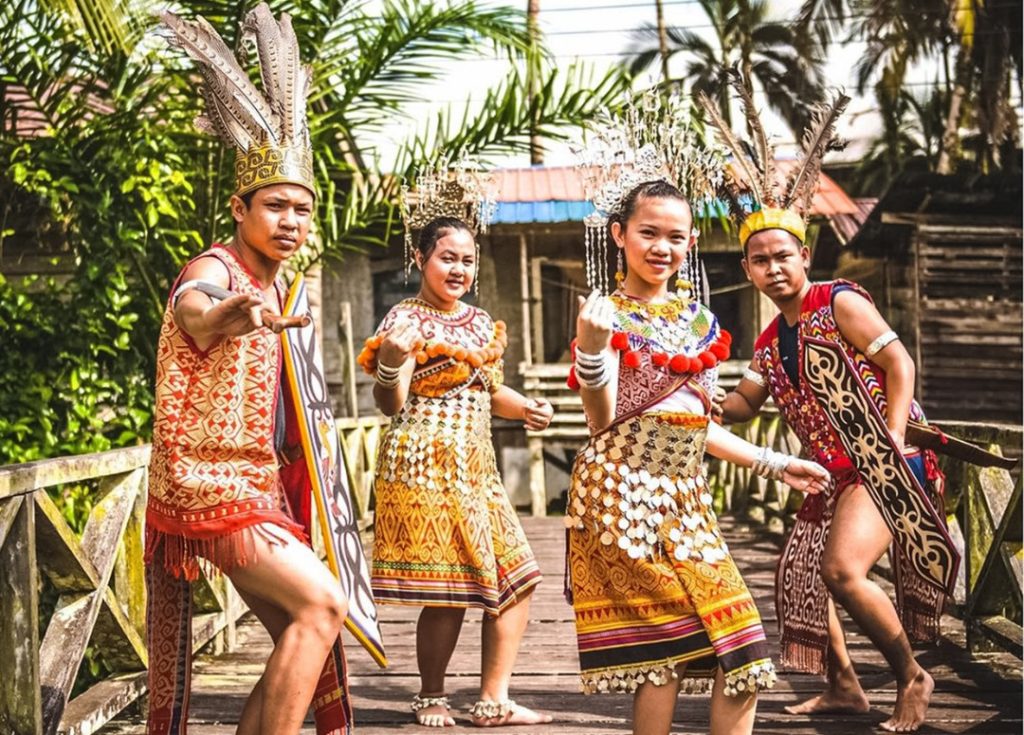
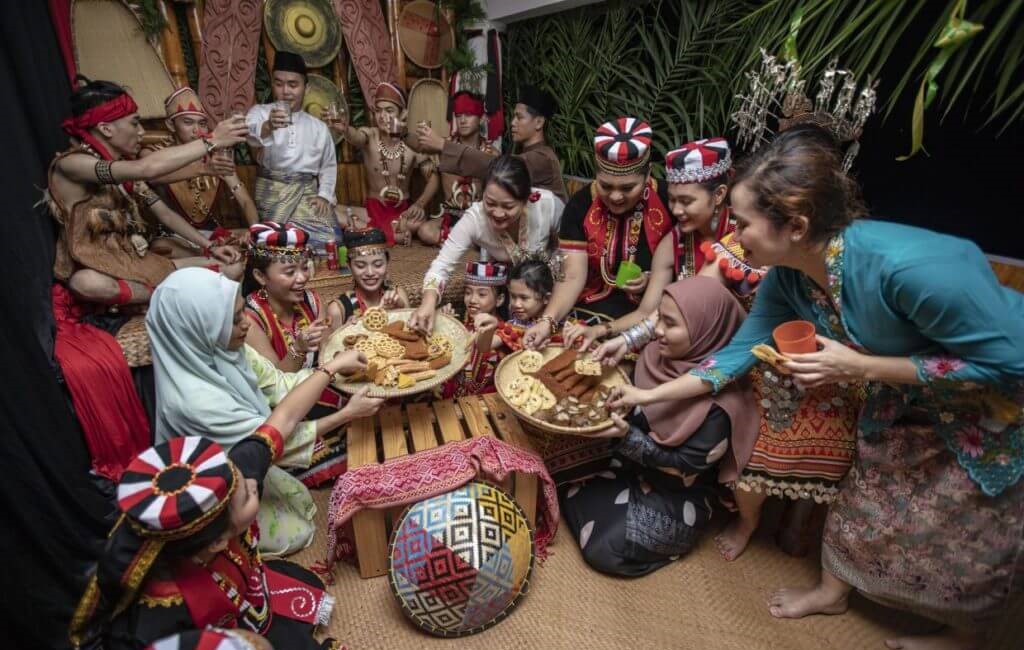
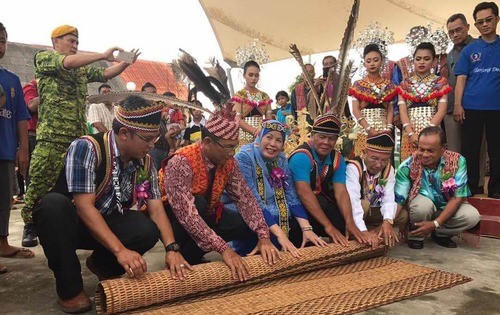
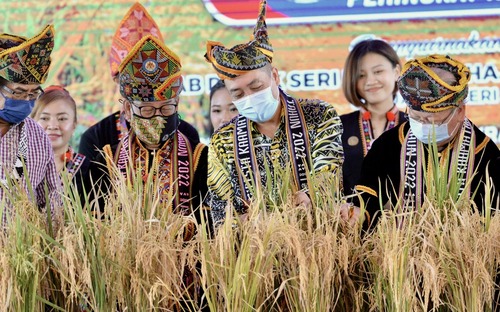
sources: https://www.buro247.my/, the star, www.iloveborneo.my, ailyexpress.com.my
Hari Gawai is a vibrant harvest festival celebrated mainly by the Dayak people in Sarawak. It marks the end of the rice harvesting season and is a time to give thanks and welcome a new beginning. The celebration begins with the Miring Ceremony, a traditional ritual to honor the spirits and seek blessings for the future.
A key feature of Hari Gawai is “Ngabang,” or open houses, where families and entire villages welcome guests with traditional food and drinks. Sharing Tuak, a homemade rice wine, is a symbol of hospitality and unity. Traditional performances such as the Ngajat dance, accompanied by gongs and drums, add rhythm and energy to the celebration.
Cultural pride is also expressed through beauty pageants like Kumang Gawai and Keling Gawai, which showcase traditional attire and heritage. Feasting is central to the occasion, with dishes like pansuh (bamboo-cooked chicken), lemang, and kuih jala. Celebrations often take place in longhouses, where communities gather to enjoy the festivities together.
Fireworks, music, and joyful gatherings fill the air with excitement. Although only Sarawak declares Hari Gawai a public holiday, Malaysians across the country recognize it as a symbol of Dayak culture, unity, and gratitude.
Ready to Explore?
Don’t let the adventure wait! Here’s how you can make the most of your trip to Malaysia and enjoy these festivals:
Book Your Rental Car Today!
- Convenience at Your Fingertips: Enjoy the freedom to explore at your own pace without worrying about public transport.
- Choose Your Ride: Whether you need a compact car for solo trips or a spacious MPV for family outings, we’ve got you covered!
- City Tour Service: Just relax and sit back while our professional drivers take you to your destinations. Enjoy the journey without the stress of driving!
Why Rent with Us?
- Affordable Rates: Get the best deals on reliable vehicles.
- Easy Booking: Reserve your car in just a few clicks!
- Explore More: Visit all the amazing nature spots in Johor without the hassle.
Adventure awaits—let’s hit the road!

